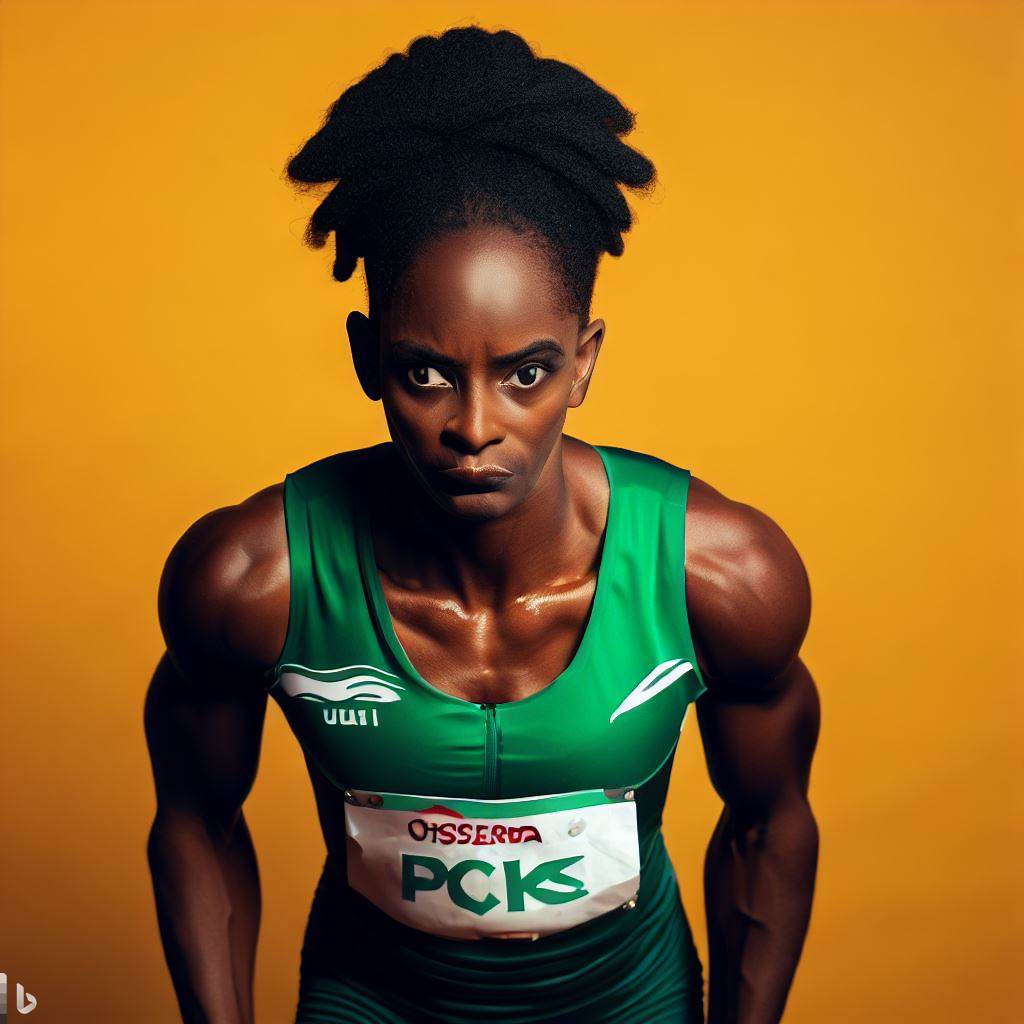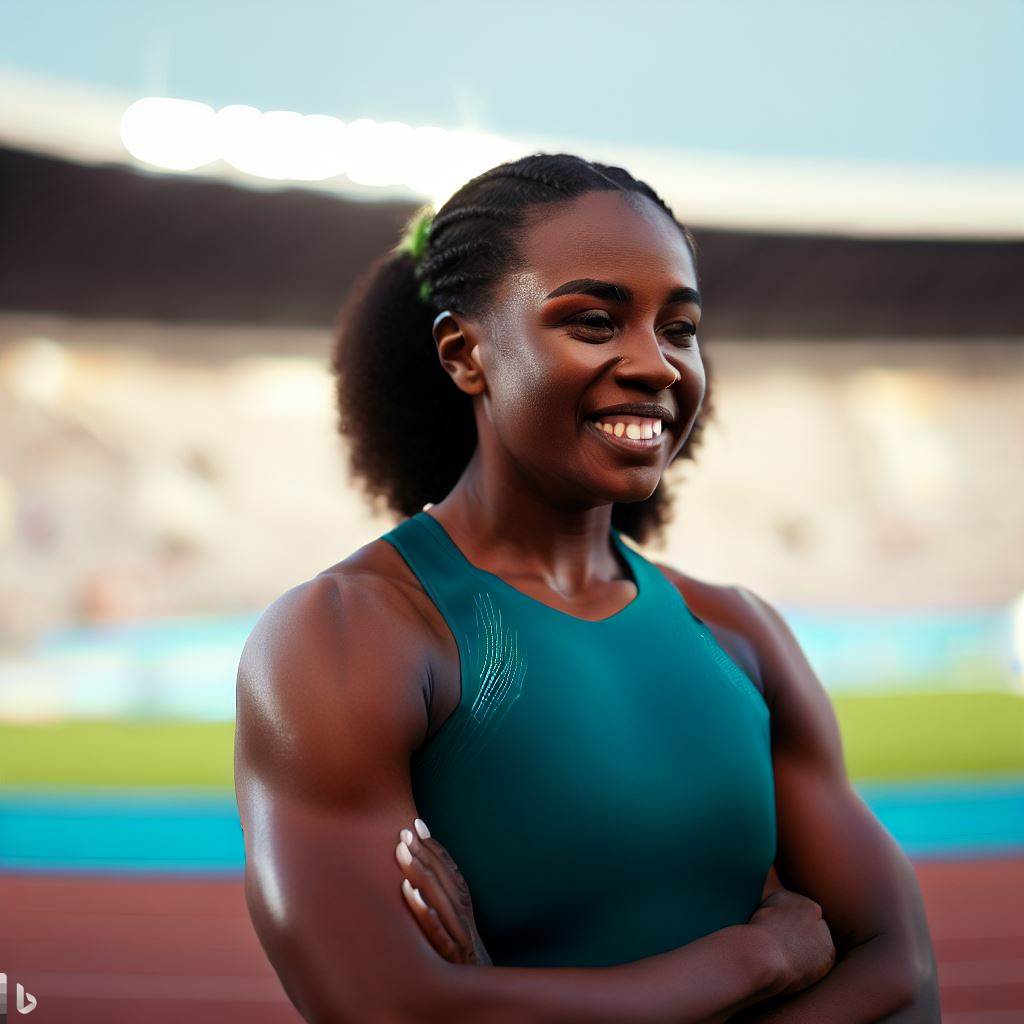Introduction
Athletics is a significant aspect of sports in Nigeria, offering an opportunity for physical fitness, recreation, and a means of earning a living.
The success of Nigerian athletes in various competitions such as the Olympics and the Commonwealth games have portrayed Nigeria as a nation with great potential in athletics.
Nigeria’s Athletics industry has a long history, dating back to the pre-colonial era when traditional sports were prominent.
However, the formalization of Athletics in Nigeria began in the early 20th century with the establishment of sports clubs and associations.
Today, Nigeria has some of the best athletes in the world, including Blessing Okagbare, Mary Onyali, and Chioma Ajunwa.
These athletes, alongside coaches, administrators, and other stakeholders, have contributed immensely to the growth and development of Athletics in Nigeria.
Read: Breaking Down Nigeria’s Athletics Training Systems
Nigeria’s Athletics Professions: Potential and Pitfalls
Potential of Nigeria’s Athletics Professions
The athletics profession in Nigeria has immense potential and is a goldmine waiting to be tapped. Several factors underline this potential:
Economic benefits
- A successful athletics program generates significant revenue and creates employment opportunities.
- The hosting of international events, such as the African Championships or the World Athletics Championships, brings in foreign exchange and boosts tourism.
- The emergence of sports betting companies in Nigeria highlights the potential economic viability of athletics in the country.
Talent pool
- Nigeria boasts a large pool of talented athletes who have gained global recognition in the past.
- The country has produced world-renowned athletes like Chioma Ajunwa, Blessing Okagbare, and Mary Onyali.
- The potential of young athletes like Ese Brume and Divine Oduduru is evident and not to be underestimated.
- The availability of a large talent pool further underlines the potential of Nigeria’s athletics profession.
Emergence of new opportunities
- The athletics profession has traditionally been associated with track and field events.
- However, there is potential for growth in other areas, such as road racing, marathons, and triathlons.
- This expansion marks the emergence of new opportunities for athletes, trainers, and advertising agencies.
Increase in brand visibility and reputation
- The success of athletes enhances Nigeria’s global reputation and brand visibility.
- Athletes promote Nigeria’s culture, tourism, and commerce on the global stage.
- Sponsorship deals with Nigerian athletes increase the profile of brands in Nigeria and on the continent more broadly.
- The media attention garnered by successful Nigerian athletes provides a gateway to promoting other aspects of Nigerian culture and development.
In essence, the athletics profession in Nigeria has immense potential for growth and development.
The economic benefits, large talent pool, emergence of new opportunities, and potential for brand visibility are clear indicators of this potential.
With proper management, investment, and support, Nigeria can become a leading light in the global athletics industry.
Read: How to Succeed in the Nigerian Professional Sports Scene
The Challenges facing Nigeria’s Athletics industry
The athletics industry in Nigeria has been plagued by several challenges over the years, hindering its progress and growth.
These challenges, if left unchecked, may cause irreparable damage to the sector, and derail the dreams of many young aspiring athletes.
The following are some of the major challenges facing Nigeria’s athletics industry:
Poor infrastructure
The state of infrastructure in Nigeria’s athletics industry, particularly sports facilities, is appalling.
Most facilities are either outdated or in a state of disrepair, making it difficult for athletes to train and compete at a high level.
This lack of adequate infrastructure prevents athletes from sharpening their skills and achieving their full potential. As a result, Nigeria has not been able to produce world-class athletes in many years.
Lack of investment
Nigeria’s athletics industry is grossly underfunded, with little or no investment from both the private and public sector.
This lack of investment has resulted in a shortage of top-quality coaches, nutritionists, and sports scientists, which are essential for developing athletes.
The absence of investment has also contributed to inadequate training facilities and insufficient sponsorship for athletes, making it hard for them to participate in international competitions.
Insufficient government support
The Nigerian government’s support for the athletics industry has been inadequate over the years.
The government has not prioritized sports development, and this has affected the sports industry.
The absence of government support has contributed to the lack of sports facilities, poor remuneration for athletes, and inadequate funding for sports programs.
This has led to the emigration of many Nigerian athletes to other countries, in search of better opportunities and training.
Brain drain
In recent times, many Nigerian athletes have left the country in search of better opportunities, which has sparked a brain drain in the athletics industry.
The absence of a conducive environment for sports development has pushed many talented athletes to seek better opportunities abroad.
This constitutes a significant loss to Nigeria as a nation and contributes to the poor performance of the country’s athletics industry.
In summary, these challenges threaten the progress and development of Nigeria’s athletics industry, and urgent action is needed to address them.
The government, private sector, and sports stakeholders must work together to provide the necessary support, infrastructure, and investment required to promote sports development and produce world-class athletes.
With the right policies and investments, Nigeria can harness the potential of its athletes and become a force to be reckoned with in the global sports arena.
Read: Top Challenges Faced by Nigerian Athletes Today

The Way Forward for Nigeria’s Athletics Industry
The potential for Nigeria’s athletics industry is enormous, but without a strategic plan and action, the pitfalls will continue to hinder its growth. Below are some solutions that can help move the industry forward:
Investment in Infrastructure
- Upgrade existing facilities and build new ones to meet international standards.
- Construct training centers in various parts of the country.
- Provide equipment and tools, including scientific tools, for efficient training.
Capacity Building
- Train athletes, coaches, and sports administrators on modern techniques.
- Encourage academic pursuits in sports science, nutrition, and medicine.
- Create talent identification programs to discover and nurture young athletes.
Engaging Private Sector Stakeholders
- Partner with private companies to sponsor athletes and athletic events.
- Encourage the private sector to establish sports academies and invest in sports-related industries.
- Collaborate with media organizations to promote the industry and provide media coverage for events.
Facilitating a Sports Industry Policy that Supports Government Vision and Objectives
- Create a sports industry policy that is aligned with the national development goals.
- Collaborate with the private sector to develop a viable sports industry that can contribute to the economy.
- Create a regulatory framework that ensures accountability and transparency in sports administration.
Therefore, Nigeria’s athletics industry has tremendous potential to contribute to the economy and enhance national pride. However, sustained investment in infrastructure, capacity building, private sector engagement, and supportive policy are necessary to move the industry forward. By implementing these solutions, Nigeria can position itself as a sporting powerhouse in Africa and the world at large.
Read: Rising Stars in Nigeria’s Sports and Athletics Scene
Conclusion
Recap of the potential of Nigeria’s Athletics industry
Nigeria has shown great potential in athletics, producing world-class athletes such as Blessing Okagbare and Divine Oduduru.
Recap of challenges facing Nigeria’s Athletics industry
However, inadequate funding, poor infrastructure, lack of proper training facilities, and corruption have held the industry back.
Call to action for stakeholders and government bodies to work together to maximize the potential of Nigeria’s Athletics industry.
All stakeholders and government bodies must put in more effort to address the challenges facing the athletics industry.
They should invest more in training facilities, provide adequate funding, and stamp out corruption.
Moreover, there is a need to develop grassroots athletics programs to identify and nurture young talent. Only then can Nigeria realize its full potential in athletics.




